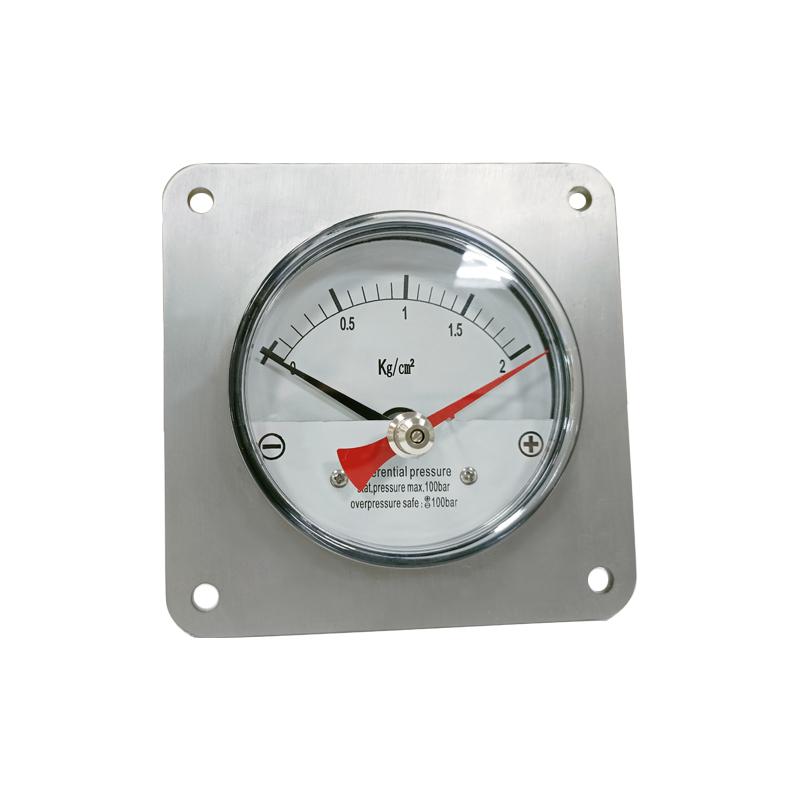
Dec . 05, 2024 16:58 Back to list
Tailored Differential Pressure Gauges for Precision Measurement Solutions
Understanding Custom Differential Pressure Gauges
Differential pressure gauges are critical devices used across various industries to measure the pressure difference between two points in a system. This measurement is essential for monitoring flow rates, preventing equipment damage, and ensuring operational efficiency. While standard differential pressure gauges may meet the needs of many applications, custom differential pressure gauges are increasingly gaining traction due to their tailored design and specialized functionality.
Importance of Differential Pressure Gauges
Differential pressure gauges play a pivotal role in numerous sectors, including HVAC, oil and gas, pharmaceutical manufacturing, and wastewater treatment. These instruments help in assessing the operation of filters, pumps, and process vessels. By measuring the pressure differential, these gauges can indicate whether a filter is clogged or a pump is experiencing issues, allowing for timely maintenance and reducing downtime.
Standard gauges may suffice for basic applications; however, many industries encounter unique challenges that require specialized solutions. This is where custom differential pressure gauges become invaluable.
What Are Custom Differential Pressure Gauges?
Custom differential pressure gauges are specifically designed and manufactured to meet unique operational requirements. These gauges can be configured with specific materials, pressure ranges, sizes, and connection types to suit particular applications. They can incorporate additional features, such as temperature compensation, which is crucial for industries where process conditions can vary significantly.
When designing a custom gauge, factors like the environment in which the gauge will operate, the types of media being measured, and the required accuracy must be considered. For example, in a chemical processing plant, a custom gauge may need to withstand corrosive substances, while in a cleanroom environment, it might require a design that minimizes particle generation.
Advantages of Customization
1. Tailored Functionality The most significant advantage of custom differential pressure gauges is the ability to match the gauge's specifications with the precise application requirements. This tailored functionality ensures that the gauge provides accurate readings, contributing to more efficient process management.
custom differential pressure gauges

2. Enhanced Durability Custom gauges can be made from precise materials suited to the operational environment, enhancing their durability and lifespan. For example, material selection can be crucial in high-temperature or corrosive environments, ensuring that the gauge performs reliably under extreme conditions.
3. Improved Accuracy While standard gauges may offer a general solution, custom designs can enhance accuracy, especially in sensitive applications where even slight variations in pressure can have significant impacts.
4. Space Optimization Industries may face spatial constraints in their setups. Custom gauges can be designed to fit specific installation spaces, allowing for seamless integration into existing systems without the need for significant modifications.
5. Cost-Effectiveness Although the initial investment in a custom gauge may be higher, the long-term benefits—such as reduced maintenance, increased efficiency, and minimized downtime—can make customization a cost-effective choice in the long run.
Implementation and Considerations
When considering a custom differential pressure gauge, it is crucial to work closely with manufacturers who understand the specific requirements of your application. Collaborating with experts can help bridge the gap between industry needs and technological capabilities, ensuring that the final product meets all necessary standards and specifications.
Factors such as calibration, installation, and ongoing maintenance should also be addressed in the planning stages. Proper calibration is necessary for maintaining accuracy, while adequate training for personnel involved in operating and maintaining the gauge ensures optimal performance.
Conclusion
Custom differential pressure gauges represent a fundamental advancement in measuring technologies, providing solutions that traditional gauges cannot fulfill. Their ability to be tailored to specific industry needs not only enhances operational efficiency but also mitigates risks associated with improper measurements. As industries continue to prioritize precision and reliability, the demand for custom solutions in differential pressure measurement will undoubtedly grow, driving innovation and improvements across diverse sectors.
-
High-Quality Pressure Gauge on Fire Extinguisher - Reliable Water Fire Extinguisher Pressure Gauge Suppliers & Exporters
NewsJul.08,2025
-
High-Quality Water Pressure Differential and Gauge Kit Reliable Manufacturers & Competitive Quotes
NewsJul.08,2025
-
High-Precision Digital Diaphragm Pressure Gauge – Reliable Manufacturer & Competitive Quotes
NewsJul.07,2025
-
Wholesale Diaphragm Pressure Gauge Supplier - Premium Quality & Competitive Price
NewsJul.07,2025
-
Digital Diaphragm Pressure Gauge Reliable & Precise Measurement Top Manufacturers Quotes
NewsJul.06,2025
-
High Accuracy Piston Type Differential Pressure Gauge - Reliable Manufacturers & Competitive Quotes
NewsJul.06,2025
